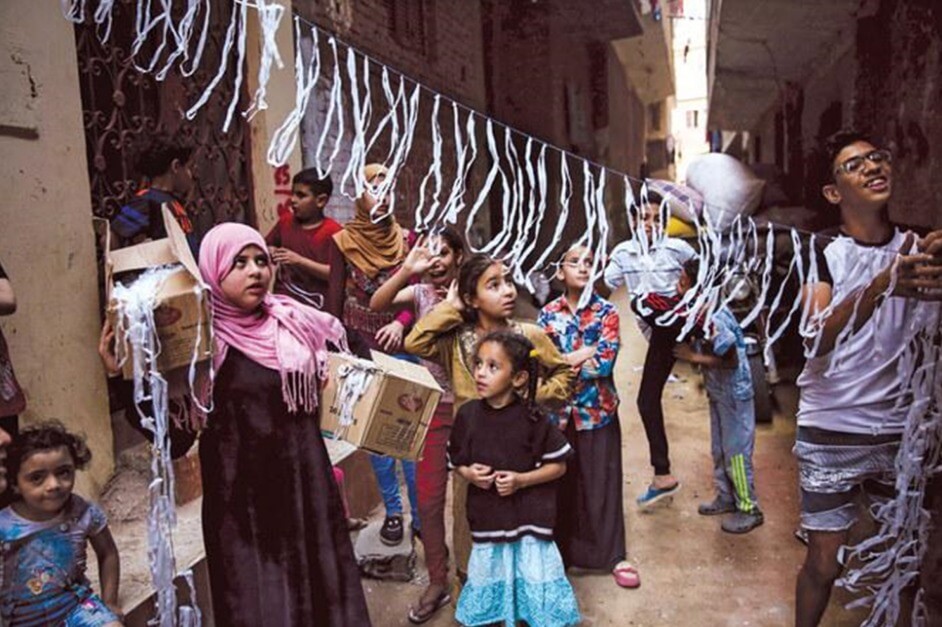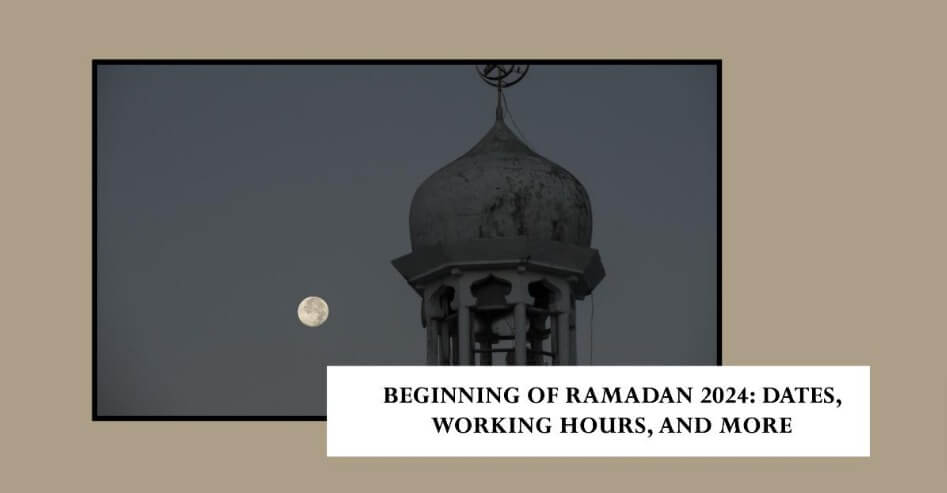As the crescent moon heralds the arrival of Ramadan, a month of fasting, reflection, and community, anticipation grows. Ramadan 2024 is just around the corner, and with it comes a time of spiritual renewal and observance for millions around the globe. This guide aims to shed light on the start date of Ramadan 2024, adjustments to working hours, and other essential information to help you navigate this holy month.
When Does Ramadan 2024 Start?

The Islamic calendar follows the moon’s cycles, and Ramadan, a special month, begins when the crescent moon is first seen. This method means that the start of Ramadan might not be the same everywhere, depending on when the moon is spotted in different places. But, thanks to science and astronomy, we can predict when Ramadan will likely start in 2024. This helps everyone prepare in advance.
Observing the moon connects us with a centuries-old tradition, blending respect for the past with modern knowledge. So, as Ramadan approaches, we look to the sky, uniting tradition with technology to mark this significant time. According to The National News, Ramadan is expected to begin on the evening of March 10, 2024, with the first day of fasting starting on March 11.
Understanding Working Hours During Ramadan

During Ramadan, a special month for Muslims, work schedules are often shortened. This change helps those fasting to manage without food and water during daylight hours. It gives them more time for prayer and spiritual activities. It’s a way of showing respect and support to those observing this important time. Additionally, in many countries where a lot of Muslims live, this adjustment in work hours is not just a kind gesture but a rule that must be followed by law. This practice ensures that everyone can comfortably participate in Ramadan’s traditions and focus on its spiritual meaning.
For Employees:
- Reduced working hours: Most countries implement shorter working hours during Ramadan. For example, in the UAE, working hours are reduced by two hours for the month.
For Businesses:
- Operational adjustments: Businesses need to plan for the change in working hours, ensuring that productivity remains high while respecting the observance of Ramadan.
Fasting and Health
Fasting from dawn until sunset is among the Five Pillars of Islam that adult Muslims observe during Ramadan. However, there are exemptions for those who are ill, pregnant, breastfeeding, travelling, or facing any condition that may be exacerbated by fasting.
Tips for Healthy Fasting:
- Hydrate well: Drink plenty of water between Iftar (evening meal) and Suhoor (pre-dawn meal) to stay hydrated.
- Balanced diet: Ensure your meals include a balance of carbohydrates, protein, and fats, along with fruits and vegetables.
- Avoid overeating: It can be tempting to overeat during Iftar, but listening to your body and eating moderately is important.
For more tips, check out our guide on the top essential Pre-Ramadan Fasting Tips.
Spiritual and Community Aspects
Ramadan is not just about fasting; it’s a time for spiritual growth, prayer, and community.
- Increased prayer and Quran reading:
- Muslims aim to engage more in prayers during Ramadan. One special prayer, called Taraweeh, is performed only during this month. It’s a time for reflection and connecting more deeply with their faith.
- Reading the Quran, Islam’s holy book is another important practice. It’s a time to understand and reflect on its teachings, bringing spiritual growth and guidance.
- Charity and community service:
- Giving to those in need is highly encouraged. Whether through money or acts of kindness, it reflects the spirit of generosity.
- Volunteering and helping within the community are also key. It’s about building a sense of togetherness and helping those who are less fortunate.
Cultural Celebrations

Ramadan is celebrated differently worldwide, each place adding its special touch to this holy month. In Egypt, streets come alive with the glow of lanterns, creating a festive atmosphere. Meanwhile, in the UAE, the end of each day’s fast is marked with the exciting boom of a cannon. These unique practices do more than just signify the time; they weave a rich tapestry of culture into the religious observance of Ramadan. It’s a beautiful blend of faith and tradition that makes this period meaningful.
Whether it’s the colourful lanterns or the dramatic cannon fire, these customs offer a glimpse into the diverse ways people honour this sacred time, making it an informative and intriguing experience for everyone, especially beginners looking to understand and appreciate the essence of Ramadan.
Eid al-Fitr: The Celebration of Breaking the Fast
Ramadan ends with a special day called Eid al-Fitr. This day is filled with joy and celebration. People come together for group prayers and enjoy a big feast. It’s a way of marking the end of Ramadan. During this month, people focus on reflecting on their lives and devoting themselves to their faith. Eid al-Fitr is also about sharing and caring, as people give to those in need. It’s a beautiful way to wrap up this important month, bringing people closer and spreading happiness. It’s a reminder of the values of kindness, gratitude, and community.
Conclusion
Ramadan 2024 promises to be a time of deep spiritual reflection, community bonding, and renewal. Whether you are observing the fast or supporting those who do, understanding the significance of this month, its practices, and its impact on daily life is essential. As we approach the beginning of Ramadan, let’s embrace this opportunity for growth, reflection, and connection.
Remember, the start date of Ramadan can vary slightly based on the sighting of the moon, so it’s always a good idea to confirm with local authorities or religious organisations.
As we prepare for this holy month, let’s reflect on its significance and how we can engage with our community and faith. Ramadan Mubarak to all those observing!


